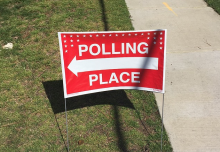Local Authority Wins Across Colorado; Comcast Loses In Fort Collins
Voters in 18 19 Colorado communities chose local telecommunications authority with an average rate of 83 percent. In Fort Collins, voters weren’t swayed by rivers of cash Comcast threw at them in the final month leading up to a ballot issue to pave the way for local fiber optic Internet infrastructure. By a comfortable margin, ballot measure 2B passed, allowing the city to proceed as it examines ways to improve competition and connectivity.
Fort Collins Voters Say Yes To 2B
Voters chose to amend the city charter in order to give the city council the ability to authorize the municipality to offer telecommunications services as a utility, rather than taking the issue to the voters in a separate referendum. The measure passed with a comfortable margin: 57 percent of voters approved the proposal.
The city has been investigating ways to improve connectivity for several years now because CenturyLink and Comcast are only providing a patchwork of substandard services. As a forward thinking community, Fort Collins wants to be sure that they don’t pass up any economic development opportunities. City leaders also feel that a municipal network is best positioned to offer affordable Internet access as a way to create an environment that is equitable and inclusive, especially for Fort Collins schoolchildren. The city is home to Colorado State University, which needs high-quality connectivity for research purposes. When considering the city’s social, economic, and development goals, the future ability to invest in Internet infrastructure makes sense. Comcast sees the measure as potential competition, the ultimate threat.
In order to allow the City Council to, at some date in the future, authorize the city municipal utilities to provide telecommunications services, Fort Collins needs to amend its city charter. Without this amendment, the City Council will need to take the issue to the voters, rather than by granting permission via ordinance. If Fort Collins decides to work with a private sector partner to deliver services, these same restrictions apply.





